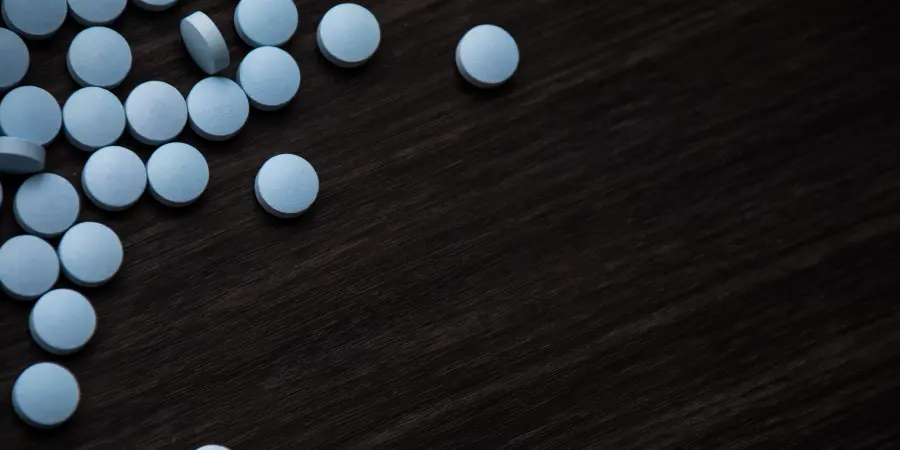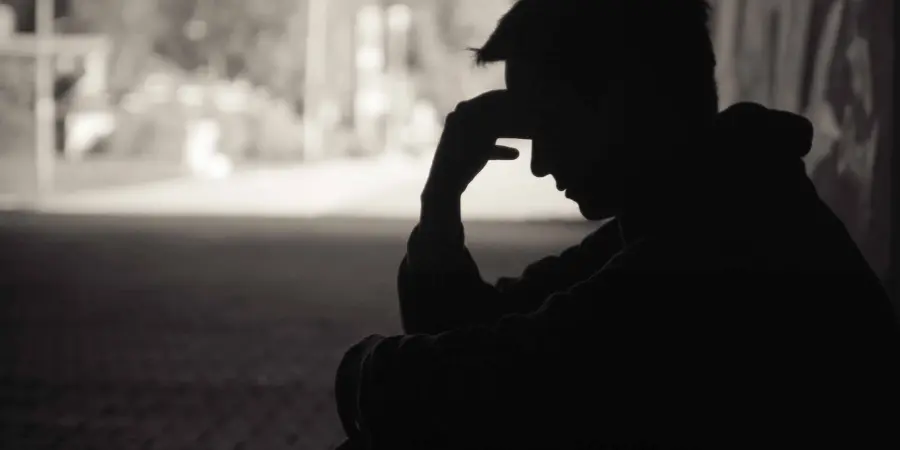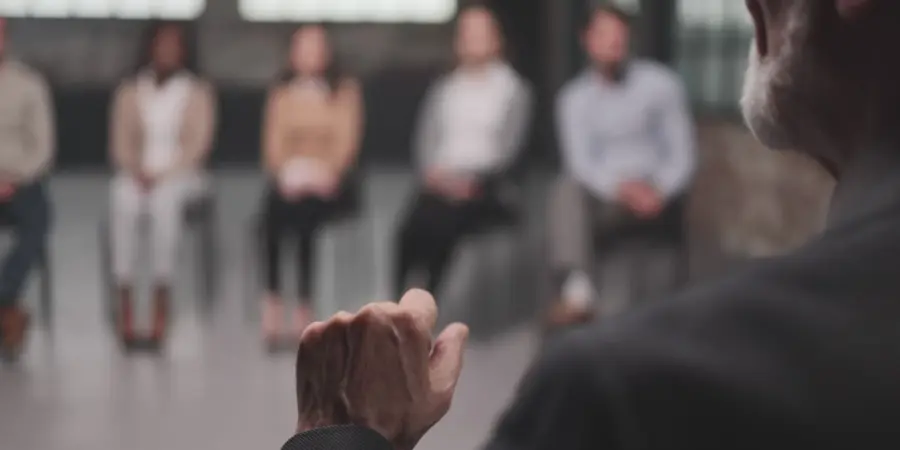
Written by:

Medically Reviewed by:
Last Updated:
February 5th, 2025
Clonazepam Addiction | Symptoms, Effects and Treatment
Clonazepam (also known by the common brand name Klonopin) is commonly prescribed to treat various anxiety disorders and certain conditions which produce frequent seizures such as epilepsy. Despite its medical benefits, however, clonazepam is commonly abused as a recreational drug which can lead to serious issues including clonazepam addiction. If you or a loved one is struggling with clonazepam addiction, it can seem like there is nowhere to turn but it is important to know that effective treatment is available. At Primrose Lodge, we provide clonazepam detox, rehab for clonazepam and a full aftercare programme that can help you start a brand new life.

What is clonazepam and how does it work?
Clonazepam is a medication in the benzodiazepine class of tranquilisers that acts as a central nervous system relaxant. It is prescribed for anxiety disorders and other conditions like epilepsy which cause seizures.
However, as well as its medical uses, clonazepam is often used recreationally because it produces pronounced feelings of relaxation, well-being and euphoria. As with other similar medications, clonazepam is highly addictive, and its long-term use presents serious risks to users’ mental and physical health.
In the UK it is a class C controlled substance and has a number of street names including K-pin, K (not to be confused with the common street name for ketamine), Pin, Super Valium and Boost. It is also available under a wide range of other brand names (including Rivotril and Linotril) as generic versions are produced in many countries around the world.
How do you become addicted to clonazepam?
There are various routes to clonazepam addiction. You may have started out with a legitimate prescription for the medication but after prolonged use developed a tolerance and then a physical dependence. Once physical dependence has developed you will feel like you need to take clonazepam just to feel “normal” and get through the day. At this point, clonazepam addiction, the compulsive need to take clonazepam despite the negative consequence, becomes a real risk.
On the other hand, you may have started doing clonazepam recreationally with your friends. For young people, in particular, peer pressure and experimentation are often the initial entry into clonazepam abuse. Again, after regular or excessive use, you may then develop a tolerance, a physical dependence and finally a clonazepam addiction.
Whatever your initial pathway to clonazepam addiction, you will have your own set of underlying causes which will need to be addressed if you are to overcome the condition. These may include depression, anxiety, trauma or other diagnosed or undiagnosed mental health conditions which you are using clonazepam to self-medicate for.
Do I need clonazepam rehab treatment?
Clonazepam addiction can be hard to spot in both yourself and in others. You may have a legitimate clonazepam prescription and so don’t think that you are addicted. Similarly, you may have only been taking clonazepam for a short time so believe that there hasn’t been enough time for an addiction to develop. However, it doesn’t matter how long you have been taking clonazepam or how much you take. A clonazepam addiction is when you have a compulsive need to take the drug despite any negative consequences.
Here are some questions to ask yourself:
- Do I take clonazepam other than for the medical reasons it was intended?
- Have I bought clonazepam from the Dark Web or gone doctor shopping to obtain it?
- Do I regularly feel tired when taking clonazepam or fall asleep at inappropriate times?
- Is my speech often slurred as if I had been drinking?
- Have I tried to stop taking clonazepam but been unable to?
- Do I experience clonazepam withdrawal symptoms when I haven’t taken any?
If the answer to the questions is yes then get in touch with Primrose Lodge today. We can help you overcome your clonazepam addiction and get you back on track.
How is clonazepam addiction treated?
The best way to overcome clonazepam addiction is with a comprehensive detox and rehab programme. This is best done at an inpatient clonazepam rehab centre where you will have 24/7 staff to support you throughout the detoxification and therapy processes. There are also outpatient clonazepam rehab services available but these tend to be less effective as you will still have access to clonazepam and will only meet your therapist once or twice a week.
During your stay in a clonazepam treatment centre, every aspect of your addiction will be addressed including your physical dependence and mental and emotional addiction. There are three main stages: detox, rehab treatment and aftercare. At Primrose Lodge, we offer all of these stages in one comprehensive treatment package to help you totally overcome your addiction and give you the tools to stay clonazepam-free. Get in touch with us today to find out more.
What is clonazepam detox?
Clonazepam detox is the process of ridding your body of clonazepam so that you can break the physical dependence. Simply put, you stop taking clonazepam so your body can recover from the damage and start to heal. There are some unpleasant and potentially dangerous withdrawal symptoms associated with clonazepam detox so it is always best done under medical supervision. Detoxification from clonazepam may be initially uncomfortable but it is a necessary process you must go through in order to cleanse your body of all traces of clonazepam.
What are clonazepam withdrawal symptoms?
Clonazepam withdrawal symptoms consist of mental and physical side effects. Fortunately,most clonazepam withdrawal symptoms don’t last too long; the timeline for clonazepam detox looks something like this:
Clonazepam rehab
Rehab is the second stage of clonazepam treatment which will address the mental, emotional and psychological aspects of your clonazepam addiction. It is most effective when done as an inpatient at a residential clonazepam treatment centre because you will have no distractions, no access to clonazepam and will be recovering alongside other people who are in the same boat as you.
Some of the main benefits of inpatient clonazepam rehab at Primrose Lodge include:
- An attractive, secluded, and tranquil environment within which you can focus on your recovery without the temptations of the outside world.
- Highly experienced, non-judgemental, hugely qualified staff at hand 24/7 to help you through the key stages of your recovery process.
- Medical experts on hand to ensure your clonazepam detox is done safely and clonazepam withdrawal symptoms are as comfortable as possible.
- A variety of therapy models enabling you to uncover the causes of your addiction and learn new coping mechanisms.
- A peer group of fellow recovering addicts who understand your experiences and can share support and advice.
- Fitness and dietary plans to give you the healthiest foundation for recovery.
Aftercare
Aftercare is the final important stage of clonazepam treatment because it will help you to stay clonazepam-free long after you leave the comfort and safety of rehab. At Primrose Lodge, you will receive one year’s free aftercare to ensure you have the necessary support long after you leave the facility.
What are the health effects of clonazepam addiction?
Clonazepam addiction can have a number of negative effects on both your physical and mental health and your life in general.
In terms of physical health, the short-term effects include:
- Pronounced lethargy
- Drowsiness
- Impaired motor skills
The long-term effects are even more dangerous and include:
- Serious cognitive impairment
- Higher risk of dementia-related illnesses
- Sporadic bouts of confusion and disorientation
- Hallucinations
- Major depressive disorder
Clonazepam overdose…
Another serious risk for people addicted to clonazepam is clonazepam overdose. This often proves to be fatal so it is important to recognise the signs listed below and seek immediate medical attention.
Signs of clonazepam overdose include:
- Impaired breathing
- A loss of muscle control and strength
- Hypotension
- Unconsciousness
- Coma
Long-term clonazepam users are also at risk of dying when drinking even a relatively small amount of alcohol as clonazepam can prove fatal when combined with other dangerous substances.
Effects of clonazepam addiction on other aspects of your life
Alongside the health implications, clonazepam addiction can also be very damaging in financial terms, especially if you are procuring clonazepam from the dark web at high rates.
Furthermore, your professional life can be seriously impacted and you may even end up losing your job due to your clonazepam addiction. Both can lead to significant debt as you spend increasing amounts of money on clonazepam and begin to neglect your work and other important obligations.
Clonazepam addiction can also lead to negative impacts on your relationships with loved ones and friends. You may begin lying to them about your clonazepam use or cause problems as a result of addiction-related mood swings or behavioural changes.
All of these issues are why it is so important to seek help as soon as possible.
What to do next
There is no better time than right now to get the help you need to overcome your clonazepam addiction. To find out more about Primrose Lodge’s clonazepam detoxification and treatment programmes, get in touch with us today. We will help to explain more about our programmes and how they can help you start a new clonazepam-free life.





